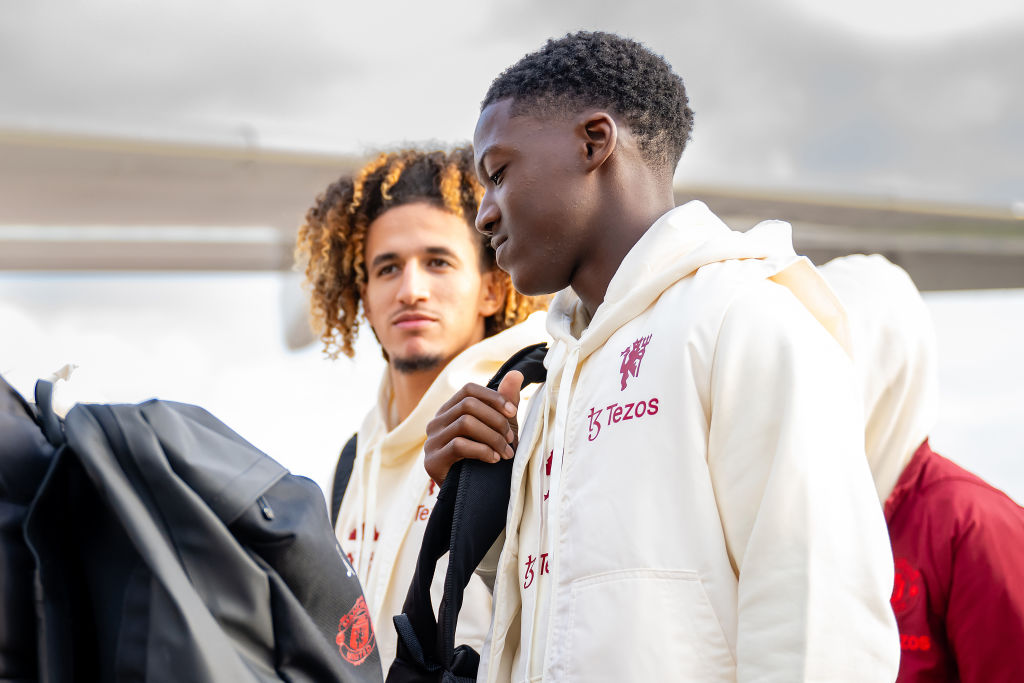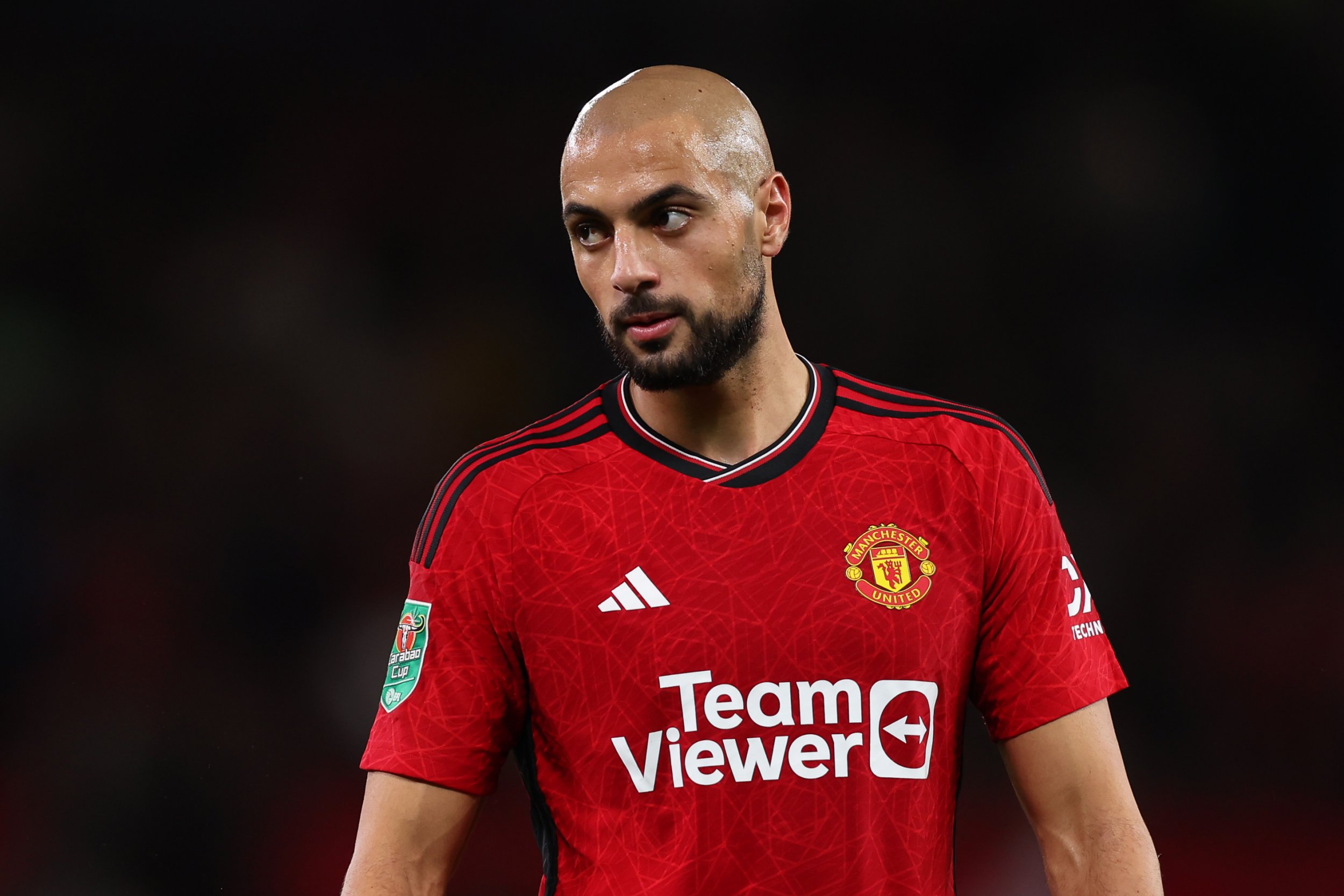
says he picked to start in ’s must-win clash against Galatasaray over Kobbie Mainoo due to his experience of playing in big matches.
Teenager Mainoo gave a precocious and assured performance at Goodison Park on Sunday as United picked up a 3-0 victory over Everton, .
The atmosphere on Merseyside was incredibly heated, with Everton fans protesting their 10-point deduction, but Mainoo handled the vitriol with calmness and composure.
But he was back on the bench for the trip to Istanbul on Wednesday night, with Amrabat starting in his place, with Ten Hag admitting he was drawn towards the Moroccan’s big-game experience, having played in a World Cup semi-final and Europa Conference League final.
Asked whether the decision was based on the need to bring in Amrabat’s added experience, or simply to rest Mainoo, Ten Hag told TNT Sports: ‘Both.
‘First of all, Sofyan is used to playing in big games but also such circumstances. He’s from Morocco, north Africa, south Europe, Italy, a lot of experience to play such games, such atmospheres.
‘So I am comfortable with Kobbie, we have seen on Sunday what he can do [in a hostile environment].

‘But he can’t play every game. He’s coming back from an injury and he’s a junior. So he has to get used to playing a number of games at a high level in a high intensity.’
There were fears the match might not go ahead due to torrential rain in Istanbul, with the weather briefly subsiding until the heavens opened again just before kick-off, but Ten Hag was happy with the conditions.
‘I was on the pitch. It was raining the whole day, so Manchester weather! I think we are very used to it and the pitch is good,’ said the Dutchman.
On his selection of the returning Rasmus Hojlund over Anthony Martial, he continued: ‘With Anthony Martial, we are happy that he is fit, over a long period, so we want to keep him fit. He’s an important player so he will contribute.
‘But also Rasmus scored already five times in the Champions League. With his speed especially tonight against them, I think that’s a huge weapon.’
He added: ‘We told the players, we have to make the crowd whistle because when we have the ball they’re whistling. So don’t quieten the crowd. We have to make sure they are whistling all the time, then it means we’re playing well.’
, . , and .




















